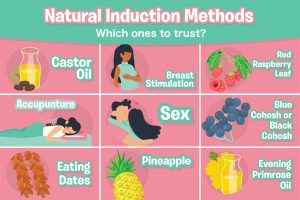10 Foods Pregnant Women Shouldn’t Eat
1. More than just healthy eating
Although pregnancy is, for many women, a time of unprecedented healthy eating, there should be more to your food choices than health because some foods may be risky for you and your growing baby. The following foods may contain bacteria, parasites, or other things that could negatively affect both you and your baby.
2. Soft Cheeses
Avoid cheeses made with unpasteurized milk, like brie, feta, and queso blanco, because they may contain E. coli or listeria, Pregnant women are 20 times more likely to become sick from these bacteria than other adults. Listeria contamination may result in symptoms like fever, muscle aches, diarrhea, headaches, stiff neck, confusion, or, in the most severe cases, death, because it can cause listeriosis. In other cases, a mother may not show any external symptoms, but can pass listeria to her infant, which can lead to miscarriage, preterm delivery, infant death, mental retardation, paralysis, or seizures.
3. Fish with high mercury levels
Fish contains lots of beneficial nutrients for you and your baby, such as omega-3 fatty acids, so you shouldn’t avoid it all the time. However, fish that contains high levels of mercury, such as shark, swordfish, king mackerel, and tilefish, can affect your baby’s developing nervous system and should be avoided entirely. Instead, shrimp, salmon, catfish, and others are great options for taking in nutrients essential to your baby’s brain development. You can consume these types of fish up to 12 ounces per week, and tuna up to 6 ounces per week.
4. Ad
5. Raw or undercooked seafood
No matter the type of fish you are eating, avoid raw or undercooked items because they may contain parasites or bacteria, which may cause a foodborne illness, especially in pregnant women, due to their weakened immune systems. In addition to the unpleasantness of foodborne illnesses, they may put pregnant women at a greater risk for complications, such as preterm labor or severe infections. Whenever you eat fish or shellfish, be sure to cook it to 145 degrees Fahrenheit. For the same reasons, you should avoid refrigerated smoked seafood, unless you can confirm that it was cooked to at least 165 degrees Fahrenheit.
6. Unpasteurized milk or juice
Cheeses aren’t the only things you should avoid when they are unpasteurized. Juices, milk, and cider that have not been pasteurized may contain E. coli, Campylobacter, Listeria, or Salmonella, which put pregnant women at risk for dangerous foodborne illnesses. Be sure to check the labels to ensure that your juice and milk are safe for you and baby.
7. Raw dough or batter
Stop! Put down the spoon! Resist your sweet tooth’s calls for raw cookie dough or cake batter. Both dough and batter contain raw eggs, which means they may also contain Salmonella and could cause you to contract a foodborne illness that puts you and your baby at risk. It will require some extra patience, but wait to enjoy sweet treats until after they come out of the oven.
8. Sprouts
If the sprouts in your meal aren’t cooked, you should avoid them until after baby arrives. Raw or undercooked sprouts, such as alfalfa, clover, and radish can contain E. coli and Salmonella, meaning they are yet another food that could cause foodborne illness and the risk factors that come along with it.
9. Store-bought salads with meat
Avoid store-bought salads, especially those with meat or fish, because you can’t know for sure whether good hygiene was practiced when it was made or how long it has been sitting in the store’s refrigerator. Even if the salad is kept in a refrigerator, Listeria could be growing in that salad, waiting to give you a foodborne illness. Instead, prepare salads yourself at home, ensuring that you follow all guidelines for any meat or fish you include.
10. Cold deli meats
Though deli meats and hot dogs are not totally off-limits, be sure that they are heated to a steamy 165 degrees Farhenheit before consuming them. Unless they are thoroughly cooked, they may contain Listeria bacteria, which could bring on a bout of foodborne illness.
11. Uncooked eggs
If your favorite eggs are over easy or sunny side up, you won’t be happy to hear that you should cook eggs or any dishes containing them until the yolks are firm or they reach 160 degrees Fahrenheit. Undercooked eggs may expose you to Salmonella, so be sure to avoid them.
12. Improperly prepared meats
Protein will be an important part of your diet throughout your pregnancy, but be sure that whatever form it comes in, it is prepared safely. For fish and beef, be sure that they are cooked to between 145 and 160 degrees Fahrenheit, and for chicken, be sure it reaches an internal temperature of 165 degrees at the center.
Sources:
- Foodsafety.gov: Checklist of foods to avoid during pregnancy. Food and Drug Administration: Food safety for moms-to-be.
Powered by Bundoo®










